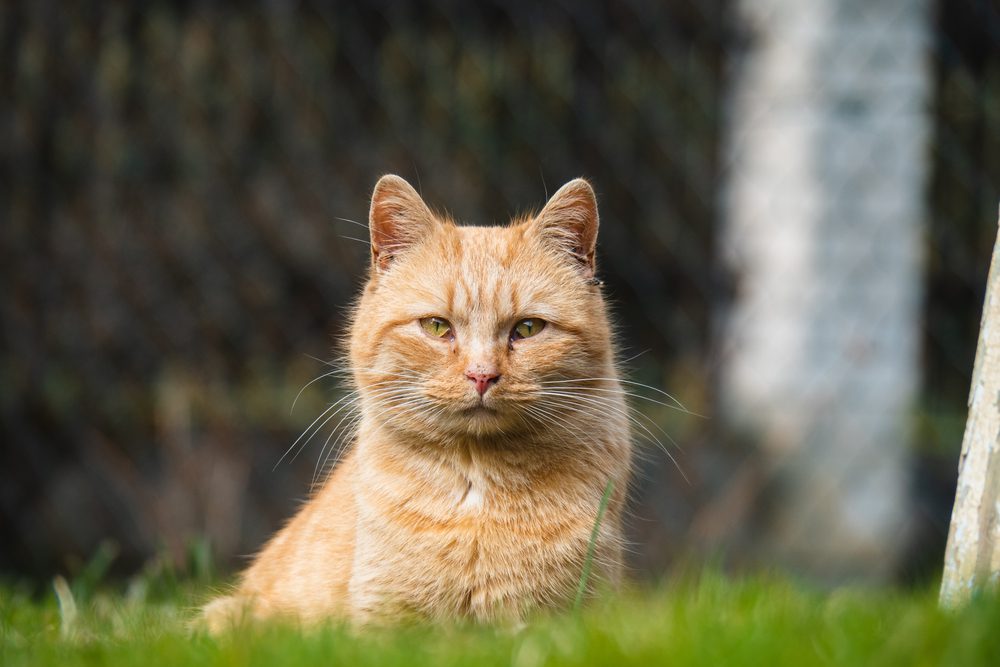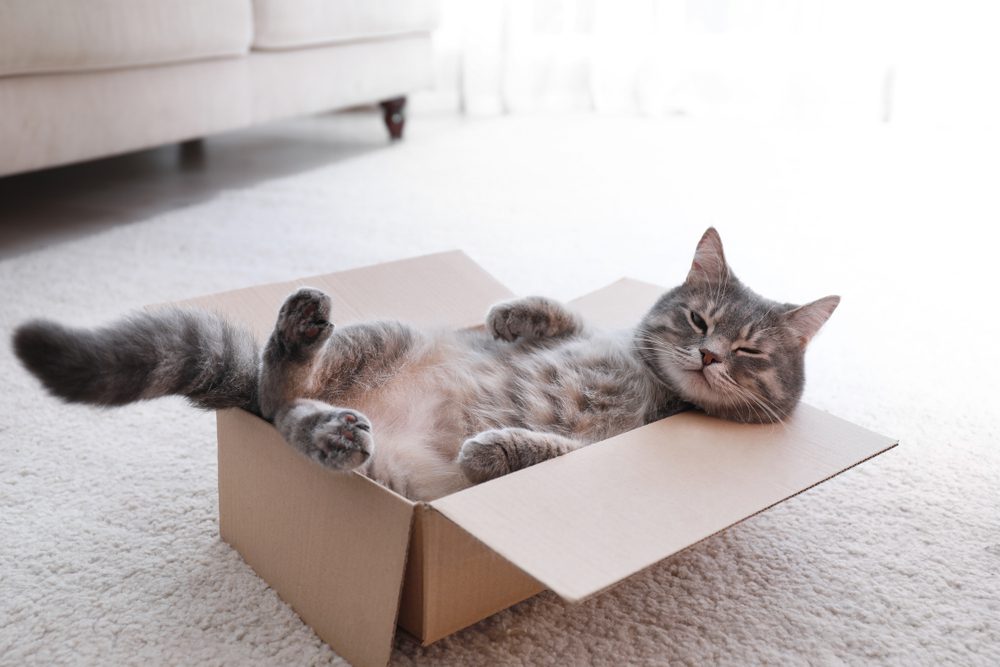Every single cat owner has heard their furry friend retching. Sometimes it might happen right after the cat eats, and otherwise, it happens in the wee hours of the morning, which wakes you up in a panic, wondering if everything’s ok. When it happens, the first thing that pops into your head is, ”What happened? What did I do wrong?”.
But oftentimes, it has nothing to do with your care. Before we start deciphering all the various reasons why cats vomit, I think it is worth mentioning that it might happen to many cats, and there are various medical reasons why. Also, we need to establish that vomiting might differ.
Sometimes, you might hear your cat gag, and if you don’t know what it is supposed to look like, well, we’re going to clarify that. You might notice your cat gagging if she sticks her neck out and makes an awful gagging noise and nothing comes out of her little mouth.
In some cases, frothy foam might come out, but they usually swallow it right back. Regurgitation might occur right after your feline finishes eating. If it happens frequently, it could mean there’s something wrong with her esophagus, and it might be due to the fact that your kitty is eating way too fast and gulping air at the same time.
Vomiting comes when there’s nausea involved. You won’t be able to miss the signs, as they always come with contracting stomach muscles and repeated swallowing. Here are some of the main reasons why your cat throws up:

Hairballs
If you notice your kitty hacking and expelling something long, thin, and fully covered in kitty saliva, then you shouldn’t worry. It’s nothing but a gross hairball. These hairballs usually appear after your cat carefully grooms herself, so it’s only natural for them to eventually, you know, come out.
There might be something you can do to reduce the huge amount of hair your cat might swallow by making sure that you are constantly brushing her fur. But it might also be a good idea to talk to your vet if you notice there are too many hairballs per month. Maybe your kitty could use a certain supplement; who knows?
Overate
Wishful felines who gulp down the food might end up throwing some of it back up. That usually happens because they eat too fast, which means that they might swallow too much air along with their food. Given the fact that a cat’s stomach is unable to accommodate everything at once, sometimes it ends up throwing up the food.
If you notice a pattern of throwing up undigested food, then it could be a sign that they need to slow down. You might feed smaller portions throughout the day or even consider using a slow feeder to encourage them to eat at a more appropriate pace.
If you have more than one feline and one tends to eat the food of another, you might solve the frequent vomiting problem by simply feeding everyone in a separate space, so they’d feel safer eating at their own pace.
New food
Did you recently decide to change the cat’s food? You might have opted for food over kibble or the other way around, but it’s worth noting that sometimes food changes might cause an upset stomach. In fact, vets recommend making small dietary changes to help the cat adjust to the change.
For instance, you could mix a tiny amount of the new food with the old one and slowly increase the amount of the new food over a couple of days, just to ease the cat’s digestive system into the new food.
If you think about it, the same thing happens to humans, up to a certain degree. Imagine what it feels like to switch to barbecue and fatty foods after weeks of healthy eating. It’s definitely a stretch!
Food allergies
If you notice your cat eating the same food and still vomiting quite often, then there might be another issue involved. In fact, it might be time to consider a food allergy or even a sensitivity. As you well know, food allergies might cause constipation, diarrhea, and other general gastrointestinal issues.
That’s why you should start making notes of any kind of change in your cat’s behavior. When did these issues start? Would you be able to identify when these potential intestinal issues first appeared?
Or maybe even track them down to what your cat eats on a daily basis to notice if there are any kind of habit changes? When it comes to this, any kind of detective work might prove to be extremely effective because it will help narrow down the possibilities all the way to the main culprit.

Intestinal parasites
Roundworms, hookworms, and various other parasites might cause your feline to feel all crummy and vomit. If your cat has parasites, then she could eat double the amount she’d normally do but still lose a lot of weight. Your vet could order X-rays or even run other tests to diagnose the issue.
Stress
Stress could affect pets as well. For instance, if you recently moved or brought home a new baby or another pet, some kitties feel the need to puke or hide. You might help them get more comfortable with the changes by making sure they know exactly where the litter box is, but also by putting their favorite bed and toys somewhere closer to you, in a serene and quiet place.
Also, make sure you do all you can to maintain their routines, and they will easily settle in.

Eating something that they shouldn’t
Playful and joyful kittens might interchangeably chew on something, whether we’re talking about a string, computer cables, or even plants. Eventually, any of these could lead to tummy troubles, as long as they swallow things they simply can’t digest.
A string might get wrapped around internal organs and even cause blockages that might require surgery to remove. Not to mention all the house plants that could be easily seen as toxic for pets! They might not even be poisonous, as eating leaves might prove to be hard to digest and even appear as foreign objects on X-rays.
Human food might make the poor cat sick, too. For instance, if you give her chocolate, caffeine, or even garlic, you might notice symptoms almost instantly. After all, these foods are on the “don’t feed the pets” list. It takes so little to make your cat feel sick. If you don’t know how to draw her attention to any of these listed above, try kitty enrichment toys. They might keep your cat busy.
Illness
The sad truth is that cats could suffer from kidney disease, hyperthyroidism, pancreatitis, and many other serious diseases that could cause serious issues. These illnesses are way more common in senior cats, and some of the symptoms might include lethargy, even unexplained weight loss, constant vomiting, and blood in the stool.
In the end, if you notice any kind of change in your cat’s behavior, maybe it’s time to make that appointment with your vet. Your vet might perform a physical assessment and even ask questions about changes in your cat’s behavior. Based on these evaluations, they could run some blood work, x-rays, and any other tests to understand the underlying cause.
If you want to know more about feline health, here’s what we recommend reading: If You Notice These 7 Things in Your Cat, Take a Trip to The Vet Now












